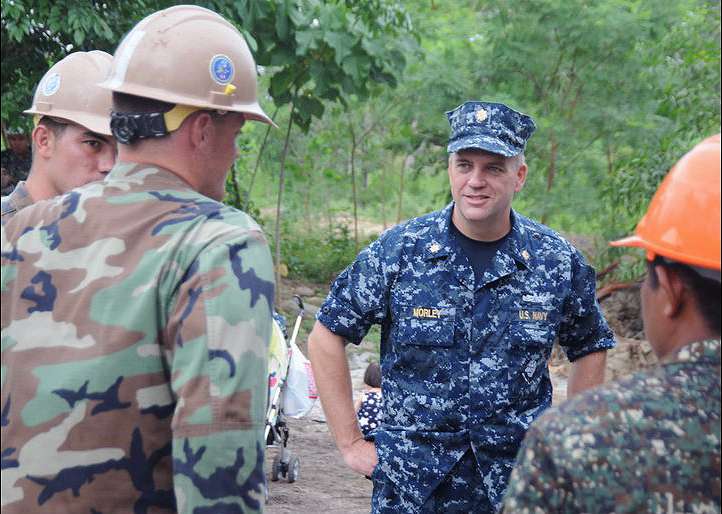
If you are a veteran struggling with mental health issues, you can call the High Plains Mental Health 24-hour crisis line at 1-800-432-0333. The National Suicide Prevention Hotline number is 1-800-273-8255.
By CRISTINA JANNEY
Hays Post
Hays veteran Mike Morley wants fellow veterans of the last 20 years to know their sacrifices have not been in vain.
As the United States approaches the 20th anniversary of the 9/11 terrorist attacks, some veterans are struggling to put their sacrifices in perspective.
Morley served as an enlisted man from August 1989 to May 2001 and an officer from August 2001 to September 2012 in the U.S. Navy, including several deployments in the Middle East during his more than 20-year military career.
"I am of the opinion that it is never all for naught," he said. "As evidence of that, I would look back. We've had no attacks anywhere near the scale of 9/11 since that time. Had al-Qaeda been left unchecked ... there is no doubt they could have launched multiple, multiple attacks on the U.S.
"I think over the course of those 20 years, we have probably prevented dozens, if not hundreds, of attacks that never had the opportunity to happen because we were fighting," Morley said. "At the same time, it is not the way you want to end any conflict."
Morley said the way the U.S. left Afghanistan is going to hurt a lot of people.
"Did my friends die for nothing? Did I sacrifice for nothing? I think the answer to that is 'No, you didn't,' " Morley said. "Your sacrifice mattered. The people we lost — that mattered. It's just not as tidy as it has been in the past."

Now is the time for veterans to come together and be there for one another, Morley said.
"The last thing you want to see is anybody harm themself because nothing they did in life made a difference or mattered," Morley said. "It did. It definitely made a difference. It kept America and its allies safer than we would have been had we not gone to Afghanistan and did what we had to do."
9/11 at Pearl Harbor
Morley had just finished officer training school and been sent to serve in the U.S. Pacific Fleet at Pearl Harbor, Hawaii, days before 9/11. Sept. 10, 2001, was his first day in the office at the Pacific Fleet office. His family was still staying in a hotel until they could get settled.
Morley usually woke up at 5 a.m., so he could go on a run before work. However, he had an odd feeling on the morning of 9/11. He turned on the TV and flipped over to CNN. Hawaii is six hours behind New York. The south tower and the Pentagon had already been hit and fallen. The north tower fell shortly after.
"I was standing there in disbelief," he said. "How can this be happening?"
He woke up his wife and told her he had to go to work.
There was a long line to enter the gate to the base. The base had gone from the lowest security protocol on Sept. 10 to its highest protocol on Sept. 11. It took him a couple of hours to get into the base.
"It was surreal. The attack had been going on, for at that point, about eight hours," he said. "Everybody knew that this was different than any other situation we had ever been in."
The Pacific Fleet has a fairly senior staff, Morley said. He was working alongside commanders, captains, admirals and flag officers.
"The fact that you are overlooking Pearl Harbor where World War II started for the U.S., you are thinking this is truly a moment to be here at this place and at this point in time," he said.
"Everybody sensed that this one was going to be different than any other war that the U.S. has ever fought in. Indeed, it has been exactly that."
Morley had several deployments to the Middle East, including to Bahrain, Qatar, Aman, as well ships off of Afghanistan and Pakistan.
Even in the first Gulf War, the enemy was defined and the enemy could be engaged using traditional military tactics, Morley said.
"This was completely different in that you had an enemy that was rapidly adaptable to whatever their environment was. They could easily blend in. They were very, very hard to detect and root out," he said.
"That is one of the reasons that the U.S. and the coalition had such a hard time from 2001 to 2005 trying to find the terrorist groups and to take them out because they were so well hidden and they were so well adapted to their environment."
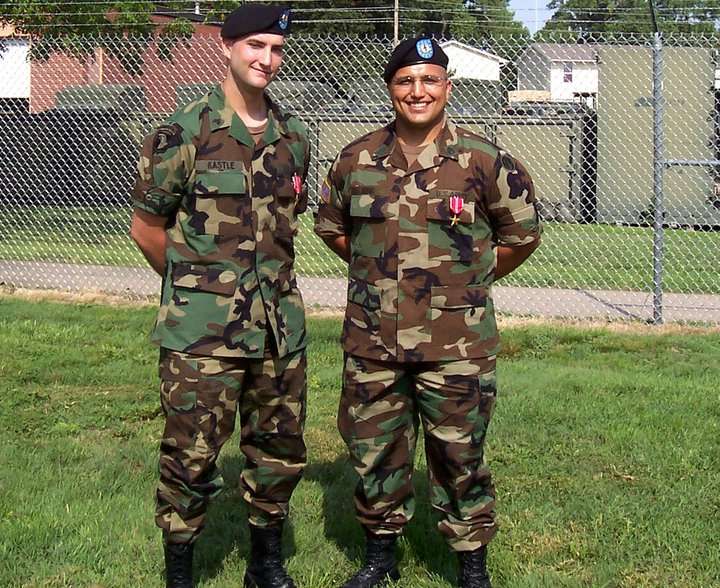
'I lost a friend'
Seth Kastle, who is now an assistant professor of leadership studies at Fort Hays State University, was a 20-year-old soldier in the Army Reserves on 9/11. He was at Fort Riley for training when attacks happened.
"You train for war, and we knew that we were going," he said. "We called family members. Everyone knew I was in the military. We knew we were ready to go that day, and we ended up going four months later."
Kastle served from 1998 to 2014. He was stationed along with other Hays soldiers in Qatar and then served in a medical logistics position with the Jordanian army in Afghanistan. In March 2003, he served with a unit during the invasion of Iraq.
When he was in Iraq, he worked with convoys, transporting supplies. IEDs and sniper fire were a constant threat.
Kastle had problems when he came home dealing with what he had experienced. He also lost a friend in Afghanistan.
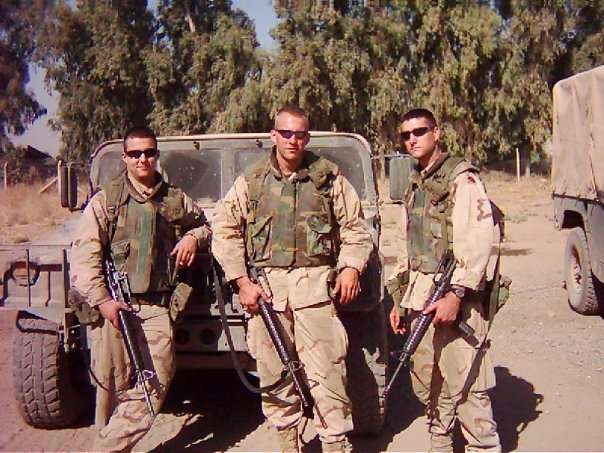
He said watching the United States' exit from Afghanistan was initially very difficult. However, he said he also thought the war in Afghanistan deterred terrorist attacks on the U.S.
"It was pretty ugly the way everything went down," he said of the end of the war. "Initially, I thought everything was for nothing. ... But you can't look at it that way.
"It's like if a doctor recognizes that you have cancer, and they are able to treat that cancer for 20 years and you still die. There are still 20 good years there. That is the position I have had to take on it.
"There are bad people in control there now, and it is a difficult pill to swallow."
Kastle urged veterans who may be struggling at this time to reach out to their support network, including other veterans with whom they served.
"They understand you more than anyone else will ever be able to," he said.
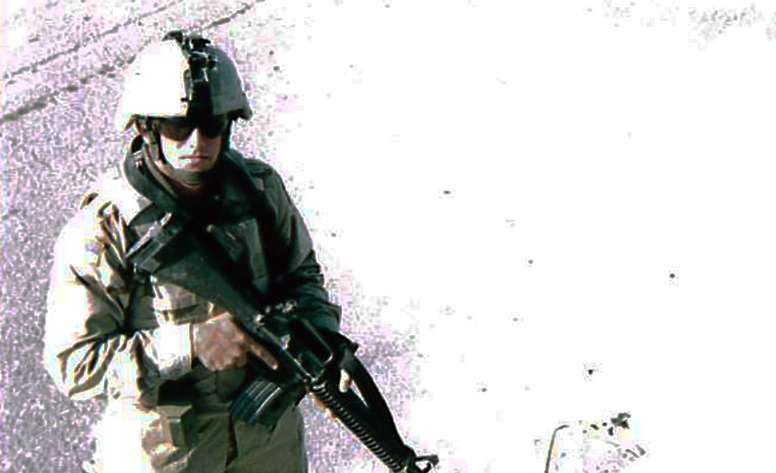
'I wanted to do something for my country'
Derrick Crisenbery, who is now a Hays police officer, was a junior in high school on 9/11.
He served from 2003 to 2006 on active duty and then in the Reserves until 2010.
He recalled a TV being wheeled into his high school class in the small town of Fayette, Ohio, and watching the planes hit the towers.
"You're young and a lot of times your mind isn't on politics or world views and world events," he said. "It was me trying to figure out what was going on and why people would do something like that. It was shock and awe and anger and trying to figure out the why of it all."
Crisenbery said he was already considering entering the military and the events of 9/11 "sealed the deal."
"I wanted to do something for my country," he said.
Crisenbery served on an armored vehicle crew. He was deployed to Iraq for about six months and faced sniper attacks and IEDs.
"It was a surreal feeling. You go through one town and people are waving at you and smiling and there are kids playing and you go through another town and the kids and people are throwing rocks at you," he said.
He said he thought Americans should honor the anniversary of 9/11.
"It's a reminder to never forget," he said. "A lot of good people lost their lives that day. We owe it to them to pay our respects and honor the fallen."
Alex Broadway, who is also a Hays Police officer, was only 11 on 9/11. He entered the Marines in 2009 and served until 2013. He served on the USS Ronald Reagan aircraft carrier.
"For a lot of people, my generation, [9/11] is the only terrorist attack they can remember," he said. "I know there were other attacks in the '90s, but for my generation, that is what really opened our eyes to the Middle East and terrorism as a whole."
Broadway said he thought remembering 9/11 remains important.
"It is important to reflect and think about the 9/11 attacks. It is important to think about why we were there in the first place and what was accomplished over that time," he said.
20 years later, terror still a threat
Morley said he would have never envisioned 20 years later the war in Afghanistan would end the way that it did.
"We've been there for 20 years," he said, "basically making Afghanistan secure and holding that place together. I think most veterans are looking at what's happening today and are absolutely stunned by the way it ended. No one likes to see that kind of an outcome. ...
"I can't imagine what it will be like to be an Afghani citizen from this point forward."
Morley said he has concerns about terrorist organizations regaining strengthen using Afghanistan as a haven.
"Afghanistan is basically going to have no central government," he said. "It's going to be this loose confederation of warlords united under the Taliban umbrella. I think that is a definite concern.
"Where are these terrorist organizations going to gravitate? They are going to gravitate to where they can open up shop with the least amount of hassle, and currently, that is Syria and Afghanistan. There's nothing to stop them."
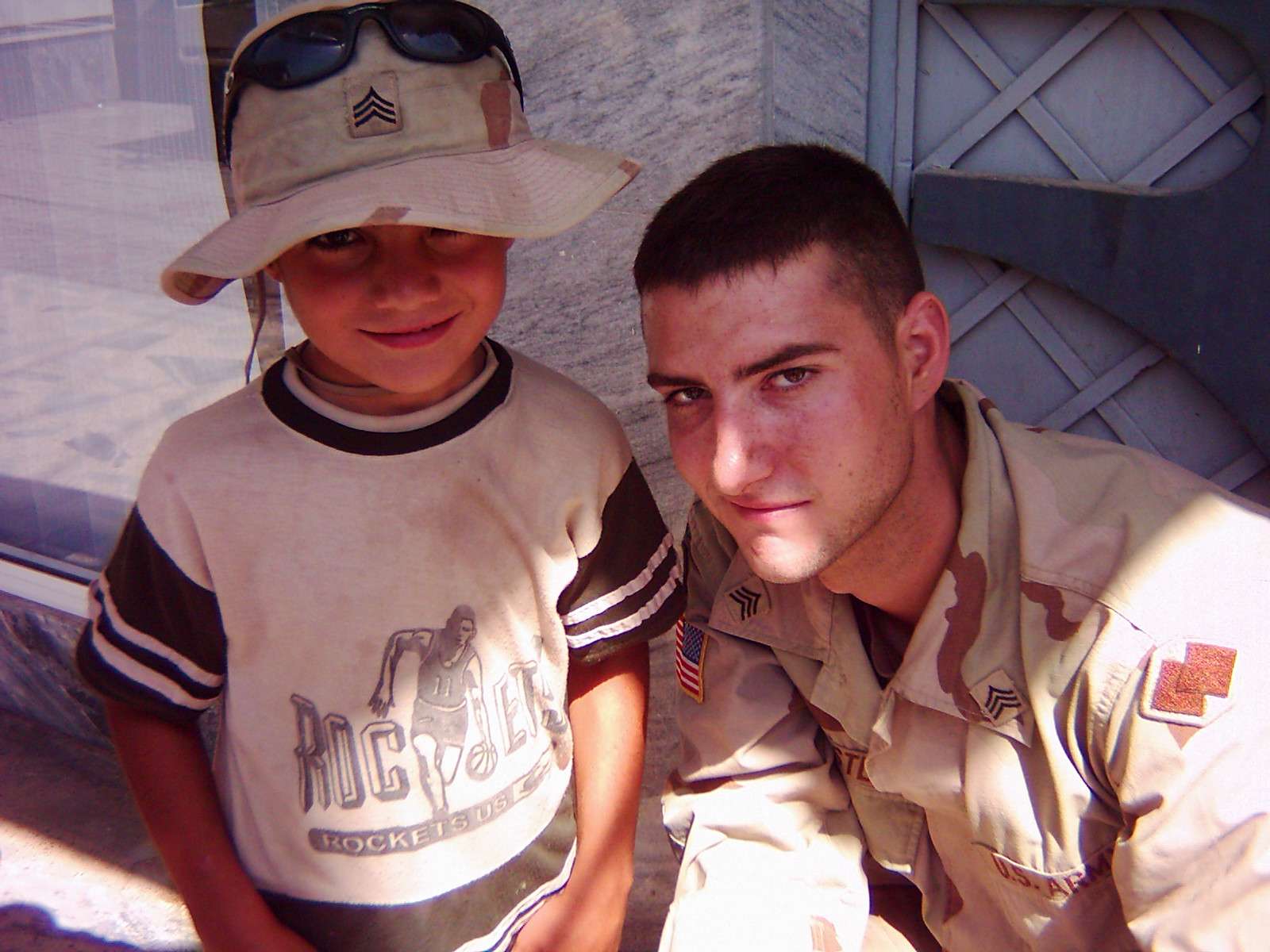
9/11 destroys nation's innocence
Kastle said he thought it is important that Americans remember 9/11 and the sacrifices of the 20-year war that followed.
"That day shaped American history forever," he said. "There were thousands of men and women who were killed that day. There were thousands of men and women who were killed over the subsequent 20 years of war that ensued following that.
"It's important that stays paramount in our minds, so we don't hastily make commitments or hastily go anywhere else. What we learn from history is important. It's important to remember not only that day, but everything that happened after that day."
Morley said 9/11 also changed the way Americans see the world.
"We grew up with this belief if we stayed strong and cooperated with other countries and treated everyone as equals that everything would be fine," he said. ...
"Sept. 11, 2001, was the giant wake-up call — that's not the case. There is real evil in the world and, when it comes out, it can be very, very ugly and very deadly. I think it destroyed the nation's innocence."






